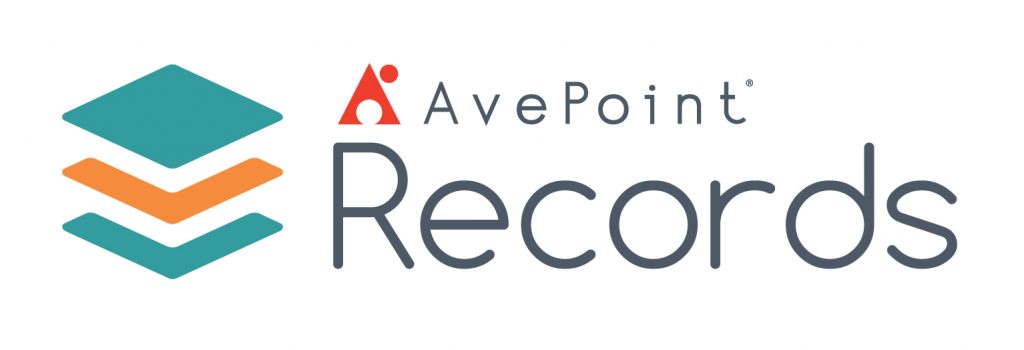Need help keeping your records management under control? Watch our free webinar “Taming Digital Sprawl With Information Governance” for must-know tips.
Well, I think we can all agree that this year did not really start according to plan. With the world completely turned on its head, the way we all work had to turn with it.
This is especially true for record and information managers who will now face new challenges in complying with their regulations, mandates, and responsibilities.
A report AvePoint recently commissioned highlighted that many Australian government agencies were not operating in a cloud environment, which of course became a huge thing when those organisations needed to be able to quickly enable those who had to work from home.
At the time the report was conducted, only 31% had migrated to cloud-based applications, although 39% were on their way. It would be so interesting to see how those percentages have changed just in the last few months.

Another issue raised in this report was the significant reliance on paper records. I shared this story recently when I spoke to The Mandarin about a friend of mine who was unable to work from home as all their information was in physical format and they couldn’t let those records leave their offices.
An entire department could not be deployed to work from home because they would lose access to basically all their information! There would be no way to digitize the volume of content in the timeframe available, so everyone had to keep coming in each day. That’s a real challenge!
The National Archives and Records Administration (NARA) in North America has released some guidance for how to manage records while a significantly increased number of people are teleworking (or working from home).
One of the areas of advice that caught my attention was this one: “Some teleworking employees may find that they use personal email accounts or other electronic messaging applications, like text messages or messaging apps within social media or video conferencing tools, to communicate for work.”
While I definitely appreciate these are extraordinary circumstances, having people use their personal email or other messaging apps for work purposes is a significant records management risk.
NARA goes on to advise that anything created using these non-official systems needs to be forwarded or copied to an official system within 20 days. Policing this is almost impossible, and we’re also asking users to perform additional steps in already trying circumstances. I think we’re standing at the bottom of an uphill battle.

One of my colleagues delivered a webinar recently and polled the participants about their concerns for information governance in this time of COVID. While this isn’t a formal survey, I do think a lot of the concerns ring true. The results included things like:
- How to manage information in technologies like Microsoft Teams that IT is rolling out to organisations
- Getting to the table when the organisation wants to roll out new systems
- Having policies in place to manage all these new information repositories
Content is being created all over the place in repositories we may not have had before or have been rolled out much sooner than we thought they would.
Here are three pieces of advice for tackling records management challenges during COVID-19.
- Invest in a cloud-based solution that will allow you to wrap your arms around this content. This will ensure you can roll a very basic records management program across the platform you are using while also buying some time to implement a more comprehensive program down the line. This may not be the records management program you had once envisaged, but having visibility of the content is paramount. Work with your IT department so you can understand what they are rolling out and what you might need to have in place to get those records managed.
- If you are able to roll out a basic records management program, you will need to focus on what’s important. Retention and disposal or disposition rules don’t matter right now. This is not the most important thing.

The most important thing is to be able to get a classification or a file plan term applied to the content. This is what is going to allow you to achieve that much-needed visibility along with the space to go back and fix things when there is more time to be able to do that. What we’re aiming for here is not perfection, but “control + breathing space.” Down the line we will be able to push out retention and disposition rules for all this content, but right now, let’s just ensure we can manage it.
- Do it all without bothering the end user. This is the most important recommendation. Our users have enough going on right now without us asking them to perform additional records management tasks. Wherever it’s possible (and this should be just about everywhere) we should be implementing these records management processes without the need for end user intervention.
Implementing something as simple as defaulting file plan or classification terms based on location is the easiest and most efficient way to get a compliant records program up and running. Investigating more advanced auto-classification like text analysis or machine learning can also play a part in this later on.
We all know these are challenging times, and managing our records has never been more important. To do this, focus on the critical needs knowing there will be more work to do down the line. Having visibility of the records you need to manage and a system to help you do that is the starting point. Everything else can wait until something close to normality is resumed.

AvePoint Cloud Records is a SaaS-based, VERS-compliant solution used to manage the information lifecycle including content classification, retention and disposal, comprehensive auditing, reporting, and physical records.
AvePoint Cloud Records follows three principles:
- End users don’t want to perform traditional records management tasks
- Records managers aren’t always SharePoint and Office 365 experts; and
- Content should be managed from the time it is created.
Cloud Records takes a modern approach to overcome physical and electronic records management challenges around authenticity, reliability, and ensuring content is maintained in a compliant format long-term.






